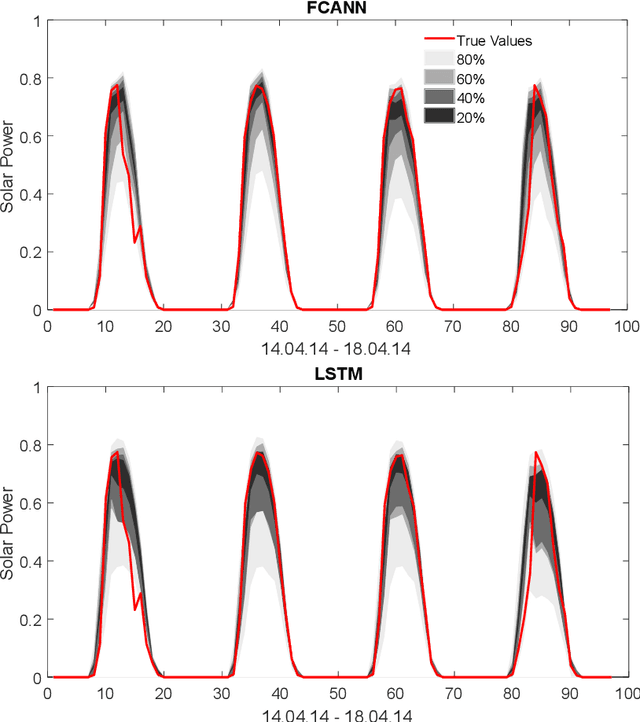Probabilistic Solar Power Forecasting: Long Short-Term Memory Network vs Simpler Approaches
Paper and Code
Jan 20, 2021

The high penetration of volatile renewable energy sources such as solar make methods for coping with the uncertainty associated with them of paramount importance. Probabilistic forecasts are an example of these methods, as they assist energy planners in their decision-making process by providing them with information about the uncertainty of future power generation. Currently, there is a trend towards the use of deep learning probabilistic forecasting methods. However, the point at which the more complex deep learning methods should be preferred over more simple approaches is not yet clear. Therefore, the current article presents a simple comparison between a long short-term memory neural network and other more simple approaches. The comparison consists of training and comparing models able to provide one-day-ahead probabilistic forecasts for a solar power system. Moreover, the current paper makes use of an open-source dataset provided during the Global Energy Forecasting Competition of 2014 (GEFCom14).
 Add to Chrome
Add to Chrome Add to Firefox
Add to Firefox Add to Edge
Add to Edge